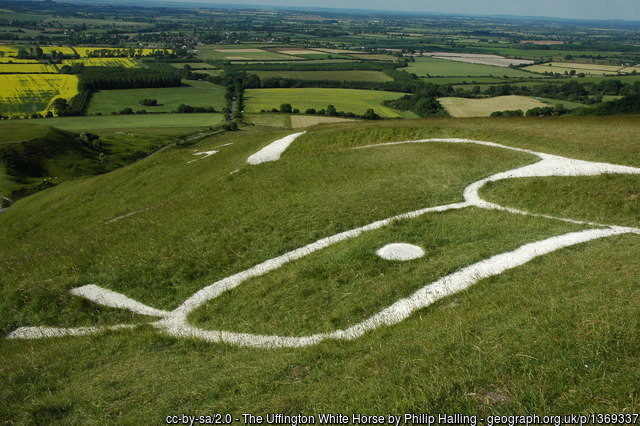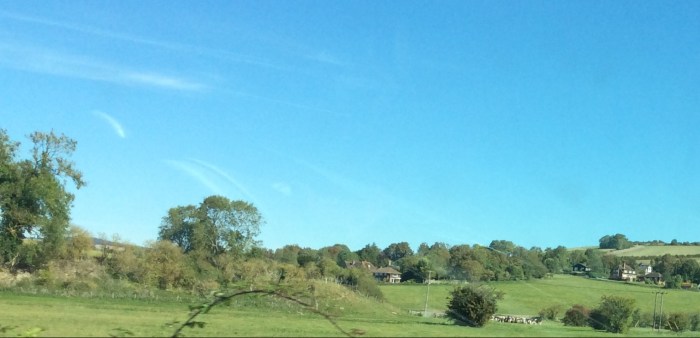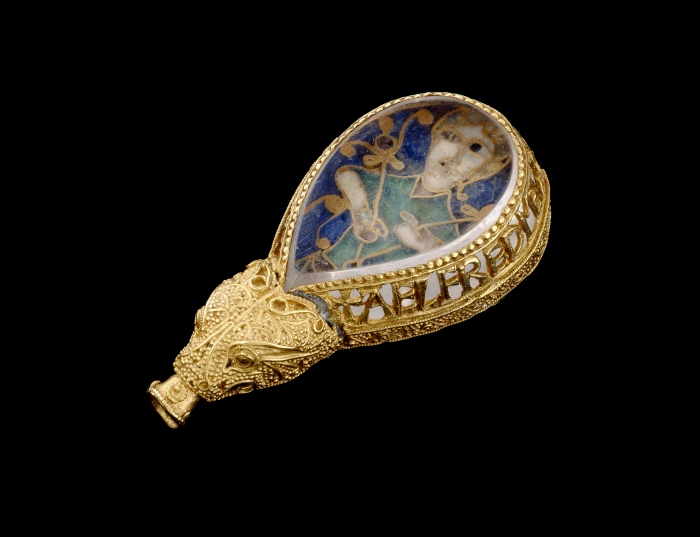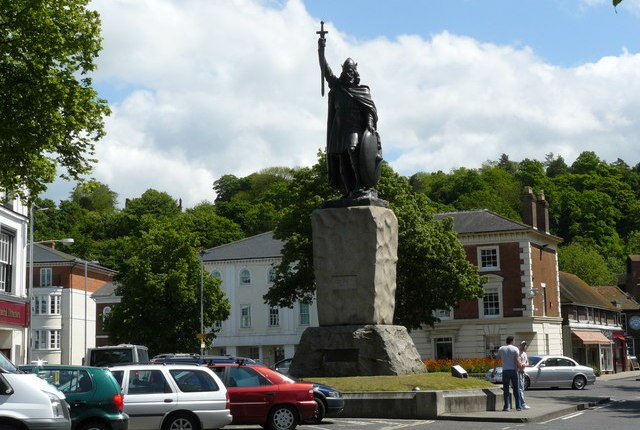Without Alfred and his children there would never have been an England with its English language, literature and culture. The story of his triumph when all had seemed lost is one the greatest dramas of England’s history.
Alfred, Man of Destiny
The times were desperate. The Saxon kingdoms of Northumbria, Mercia and the East Anglia had succumbed to the Vikings’ brutal attack. Wessex the last remaining kingdom seemed about to be taken over by Guthrum and his Danish army. All except for one man, Alfred the Great. (above Winchester photo by Peter Trimming -Geograph)
To put you into the picture here’s an inspiring 3 minute clip from Michael Wood’s superb BBC programme in 2013

But the Danes returned with a much larger army and in 877 launched another surprise attack to try to finally conquer Wessex. This time, Alfred was caught unprepared as he celebrated Christmas at Chippenham. He managed to flee and was reduced to hiding in Athelney in the Somerset Levels. Wessex was now at the Danes’ mercy.
There was not English armour left,
From G.K.Chesterton’s epic ‘Ballad of the White Horse’
Nor any English thing
When Alfred came to Athelney
To be an English king.
But from Athelney Alfred was able to summon his troops again and eventually defeat the Danes at Edington in 878. It was a brave act. It was either the brutal ‘blood eagle’ of the Vikings’ pagan gods or the Cross of Christianity. Alfred had one advantage, he was on home territory -he grew up in these hills of Wessex. He was also conscious of a strong call to destiny as a Christian king confirmed, according to the Anglo-Saxon Chronicle and Bishop Asser’s Life of Alfred, by that vision and dream of Saint Cuthbert encouraging him.

Alfred the Christian King
The tables finally turned at the decisive battle of Edington and the defeated remnants of the Vikings fled to Chippenham where they were besieged by Alfred’s forces. When the Danes surrendered, they must have been amazed at Alfred’s magnanimity in victory. Previously used to gruesome, brutal cruelty to their defeated enemies, they were now meeting Christian kindness and mercy instead. Guthrum the leader agreed to make peace and undergo Christian baptism with some of his leaders. Then with the remainder of his army he left Wessex to settle in East Anglia.

‘Alfred the Wise, the Good, and the Great!’
Words quoted at the unveiling of the famous statue in Winchester (featured top photo ) to mark the 1000th anniversary of Alfred’s death on October 26th, 899.

The Anglo-Saxon nations were divided, disorganized and vulnerable. To stop Viking surprise attacks that had caused so much havoc Alfred established 40 fortified settlements with armed men stationed at each, at key strategic points around Wessex including nearby Burpham. Alfred himself drove the Danes out of London in 886 and re-established it as a port of trade. His children, Aethelflaed (in Mercia) and Edward the Elder (in Wessex), eventually drove the Viking armies out of all the Anglo-Saxon kingdoms. Athelstan, Alfred’s grandson, became ‘King of All England’ in 926.
‘This is the story not just of military victory but of vision and creativity in dark times and of the founding of a nation. Alfred’s family dynasty were among the most gifted of all the rulers of British history….They shaped the deep bone structure of Christian England and of Englishness itself…. English language, law and culture, towns, shires, English literature, learning and education.’
Michael Wood

A ring like this was sent with each letter addressed to the bishops of Alfred’s kingdom in which he spoke of his wish to return to a time before ‘it had all been ravaged and burnt’, (by the rampaging Vikings) when ‘churches throughout England stood filled with treasures and books as centres of learning and education.‘
Alfred encouraged a programme of translation of books into Old English and he personally translated the first 50 of the Psalms as well as other books.
When another hero. Churchill, was asked about the greatest Englishman he pointed to his own hero and inspiration, Alfred the Great. We, too, salute him on his day – October 26th.
I recommend The Life of King Alfred, based on the original documents.
Michael Wood’s superb BBC series can still be seen on youtube – a poor reproduction but still worth watching.

Praying you are well, and interestingly, I think our nations and our world are quietly imploding, while the young have never been taught the history of who we are and what we have accomplished. And that lack of historical perspective is intentional. Blessings to you both Jennie and Jim
LikeLike
I couldn’t agree more. To discover who we are we need to know where we’ve come from. Our two nations have come from a rich Christian heritage. Good to hear from you both. Yes, we’re well. We hope you are too. Every blessing.
LikeLike